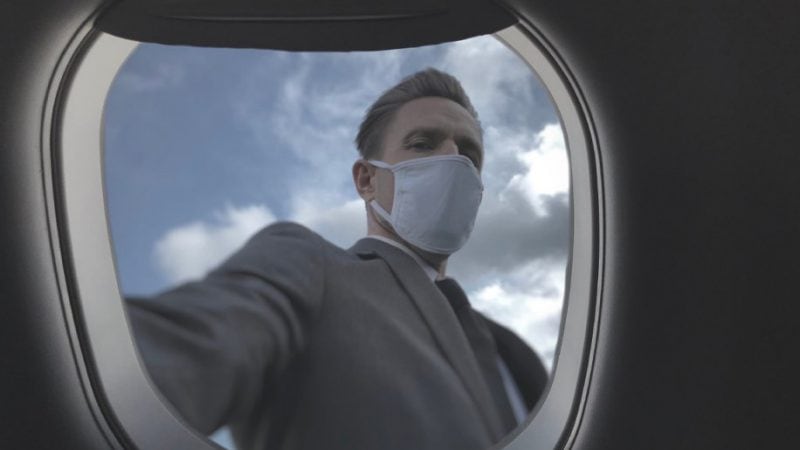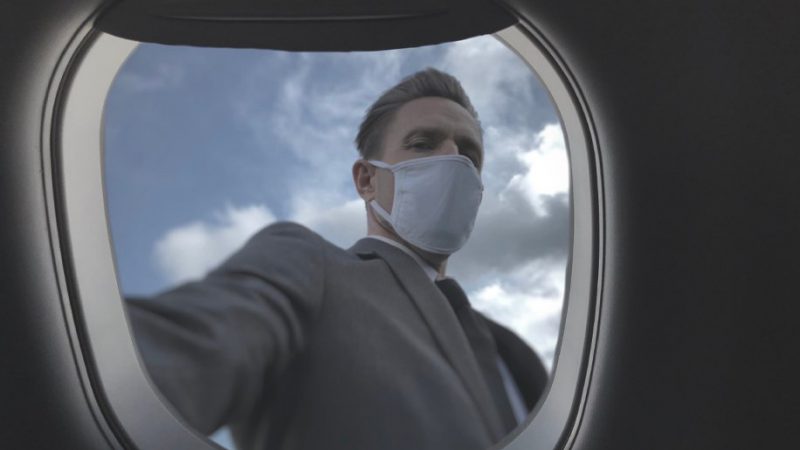Should You Fly Now?
Mandatory inflight social distancing entails new rules and new discomforts. Is the price too high to pay for most travelers?
May 24, 2020

“Flying. It’s a sorry prospect right now,” CNN’s Anderson Cooper commented on a May 21 Covid-19 Town Hall Meeting.
Cooper may have been referring to news that some airlines like Qatar will be outfitting its flight attendants in full hazmat suits.
Or to a statement by his colleague Tom Costello over at NBC News on the podcast “Into America” that concerned passengers will be sporting eye goggles as well as masks on the increasingly fuller flights that are taking off around the country.
“I gotta tell you, a lot of people are now suggesting that you wear goggles,” Costello told the show’s host Trymaine Lee. “Like racquetball goggles to protect your eyes, because you’re not just vulnerable from breathing something in through your nose and your mouth, but also if a drop lands in your eye.”
Costello said that the next time he flies, “it’s going to be the mask, the goggles perhaps. I’ll look very silly, you can make fun of me, that’s fine. It’ll be the Purell and the Clorox wipes and all of that, and just trying to be very mindful.”
Passengers accustomed to little or no legroom, invasive security checks and increasingly spare in flight comforts must now navigate temperature checks as well by airlines like Frontier, mandatory masks and the encroaching likelihood that they may have to sit next to another passenger on a potentially full flight.
Is flying now (or traveling in general) worth it?
“I think it’s a great question,” Jan L. Jones told Business Traveler USA.
The Program Coordinator for the Hospitality and Tourism Management Program at the College of Business at the University of New Haven is debating that question with her students and colleagues.
“People I’ve talked to, especially young people are hell bent on re-planning whatever trip they had when the pandemic first stopped travel,” she says.
“Personally, I stopped traveling when it appeared that you could be putting other people at risk. I stopped going anywhere. But as travel opens, I think I would be in one of those first groups of travelers to take that adventure.”
Jones believes despite perceived discomforts of issues like masks in flight and social distancing, travel will recover in the long term but in the short term “very few people will travel internationally.”
She also sees business travel being first to recover fully, as opposed to leisure. “Business travel is a global industry. People who travel for business who do things like inspect production facilities will say to themselves, ‘This is what we do,’ and will simply go back to doing it,” she says.
She also sees one aspect of travel changing significantly.
“The democratization of travel will definitely change,” she explains. “It will go back, at least temporarily, to where it was when only people who could really afford the significant expense would travel,” she says, citing issues like two-week quarantines in vacation centers like Hawaii and Maine and the possibility that airfares may see hefty increases over the arc of travel’s recovery. “That part of it makes me sad,” she says.
Unlike other travel industry experts, Jones does not see virtual experiences taking the place of travel anytime soon.
“Personally, I can’t wait to get a break from VR,” she says. “I want to put the computer down and go out and have an adventure. I think a lot of people feel the same way. The virtual experiences are only whetting our appetite for real travel.”




